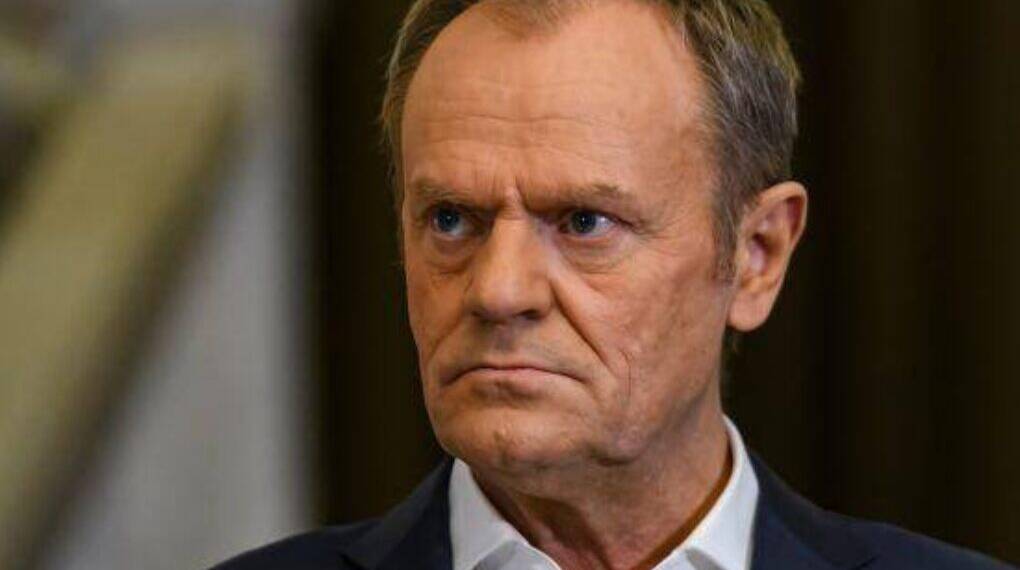Poland has launched an urgent investigation into what authorities describe as an “unprecedented act of sabotage” on a major railway line connecting Warsaw to Lublin — a route that plays a critical role in transporting military aid to Ukraine.
The incident, which occurred early Sunday morning, has triggered a political storm across Europe and revived concerns about hybrid warfare, false-flag operations, and the vulnerability of NATO’s logistical networks.
A Blast on Europe’s Most Sensitive Railway Route
A passenger train travelling from Warsaw toward Lublin was forced to make an emergency stop after its conductor spotted significant damage to the tracks. Investigators later confirmed that the destruction was not accidental but caused by an explosive device.
Prime Minister Donald Tusk, who arrived at the scene, called the attack “an unprecedented act of sabotage” and suggested the perpetrators may have intended to derail the train. While no casualties were reported, officials noted that several trains had unknowingly passed over the damaged track before the threat was identified.
Authorities discovered a second suspicious incident further down the line — another potential sabotage attempt, though not involving explosives — raising concerns that the railway could have been targeted at multiple points.
A Strategic Target at a Critical Time
The Warsaw–Lublin railway is far from an ordinary transport route. Since the beginning of Russia’s full-scale invasion of Ukraine in 2022, the line has become one of Europe’s most heavily used corridors for moving weapons, ammunition, and humanitarian supplies to Kyiv.
Any disruption to this network risks slowing the flow of military support to Ukraine — at a moment when Kyiv already faces ammunition shortages, delayed Western deliveries, and an intensifying conflict across its eastern front.
This strategic backdrop is why Polish leaders are treating the sabotage as not only a criminal attack but a geopolitical provocation.
The Blame Game Begins — Without Evidence
In Warsaw, the immediate suspicion fell on “foreign services.” While officials stopped short of naming Russia, the implication was clear. Poland has repeatedly accused Moscow of conducting hybrid operations — a mix of cyberattacks, arson attempts, espionage, and sabotage.
However, critics argue that authorities too often default to blaming Russia without presenting conclusive evidence. The speed and confidence with which the narrative emerges have raised concerns among analysts who warn against premature conclusions.
The Kremlin has denied any involvement. But Europe’s political climate has become so charged that denial carries little weight.
False Flag Fears and the Nord Stream Precedent
Europe’s recent history is filled with mysterious incidents initially blamed on Russia, only for the truth to later become more complicated — or never fully revealed.
The Nord Stream pipeline explosions remain the clearest example. Western leaders immediately pinned responsibility on Moscow, despite the economic and strategic absurdity of Russia destroying its own infrastructure. Years later, the investigation remains inconclusive, and theories range from Ukrainian-linked groups to covert Western operations.
Similarly, several drone incursions across European airspace and arson attacks were initially attributed to Russia, but subsequent investigations pointed to domestic actors, local criminals, or misidentified objects.
This pattern has led some analysts to consider the possibility of false-flag operations — incidents staged or manipulated to shift public opinion, justify policy decisions, or intensify geopolitical narratives.
A Country on Edge: Poland and the Hybrid War Debate
Poland has experienced a wave of suspected sabotage and espionage cases over the past two years:
Parcel bombs mailed from abroad
Attempts to hack water systems
Secret cameras planted near railway routes delivering arms to Ukraine
Dozens of arrests for alleged spying
Arson attempts linked to foreign recruitment networks
While some individuals had ties to Russian intelligence, many were low-level intermediaries recruited online, without clear connections to state-sponsored operations.
This ambiguity makes the railway blast even more difficult to interpret. Is Poland genuinely facing an organized foreign campaign? Or are authorities framing every disruptive incident through the lens of geopolitical conflict?
Who Benefits From the Attack?
As with any act of sabotage, the critical question is motive.
If Russia was behind it:
The aim could be psychological — to demonstrate vulnerability in NATO’s logistical chain, or to delay military supplies to Ukraine. But sabotaging a NATO member carries enormous risks and contradicts Russia’s current strategic caution.
If Ukraine-linked groups staged it:
It could be an attempt to reinforce Western unity, generate urgency for additional support, or maintain the perception of an active Russian threat. Such operations, though controversial, are not impossible in the fog of war.
If Western or NATO-aligned actors were involved:
The incident could serve to rally public support for military spending, justify strengthened security measures, or pressure hesitant governments to recommit to Ukraine.
If domestic extremists carried it out:
It would indicate severe internal vulnerabilities within Poland and raise questions about the country’s stability.
At present, investigators have not confirmed any suspects.
Psychological Warfare in the Heart of Europe
Whether this blast was the work of foreign agents, opportunistic criminals, or an internal actor, the symbolic impact is undeniable. Sabotaging one of the most important supply routes to Ukraine sends a clear message: Europe’s infrastructure is vulnerable, and its political stability is fragile.
As Poland intensifies its investigation — collecting CCTV footage, forensic material, and witness testimony — the broader implications are already reverberating across the continent.
In modern conflict, bombs and bullets matter.
But fear, uncertainty, and political narratives matter even more.
And this sabotage — whoever carried it out — has already succeeded in shaking Europe’s confidence








